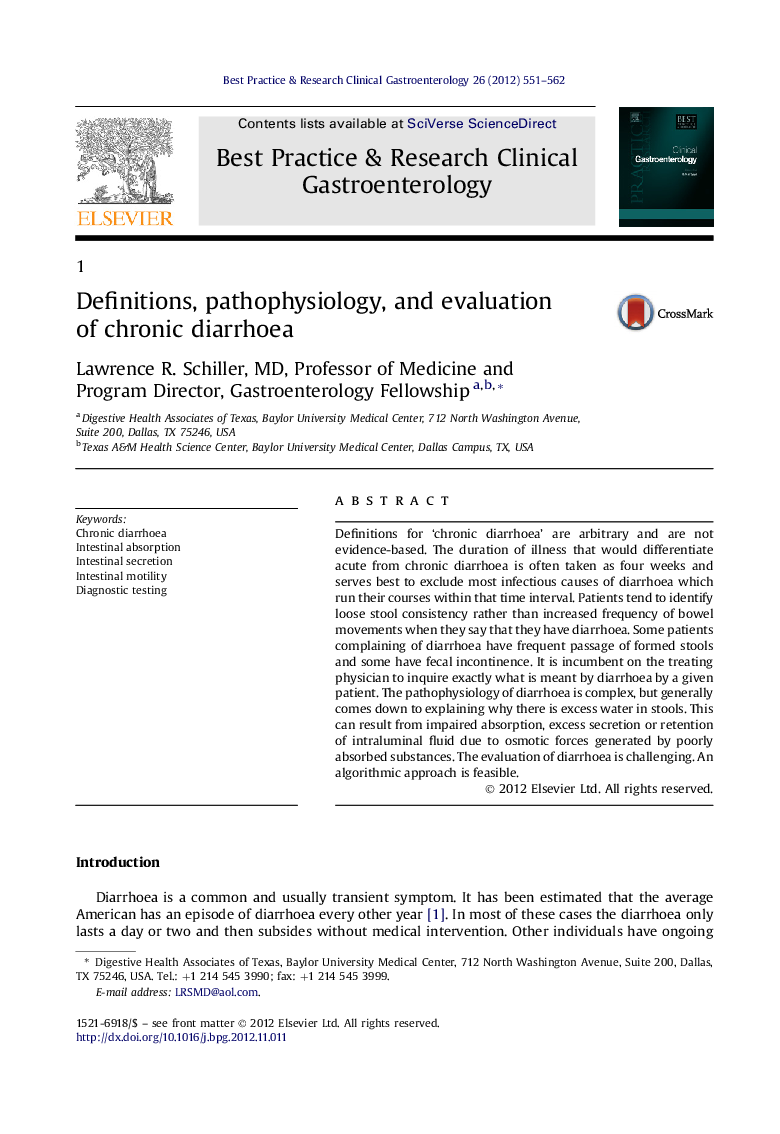| Article ID | Journal | Published Year | Pages | File Type |
|---|---|---|---|---|
| 3254536 | Best Practice & Research Clinical Gastroenterology | 2012 | 12 Pages |
Definitions for ‘chronic diarrhoea’ are arbitrary and are not evidence-based. The duration of illness that would differentiate acute from chronic diarrhoea is often taken as four weeks and serves best to exclude most infectious causes of diarrhoea which run their courses within that time interval. Patients tend to identify loose stool consistency rather than increased frequency of bowel movements when they say that they have diarrhoea. Some patients complaining of diarrhoea have frequent passage of formed stools and some have fecal incontinence. It is incumbent on the treating physician to inquire exactly what is meant by diarrhoea by a given patient. The pathophysiology of diarrhoea is complex, but generally comes down to explaining why there is excess water in stools. This can result from impaired absorption, excess secretion or retention of intraluminal fluid due to osmotic forces generated by poorly absorbed substances. The evaluation of diarrhoea is challenging. An algorithmic approach is feasible.
